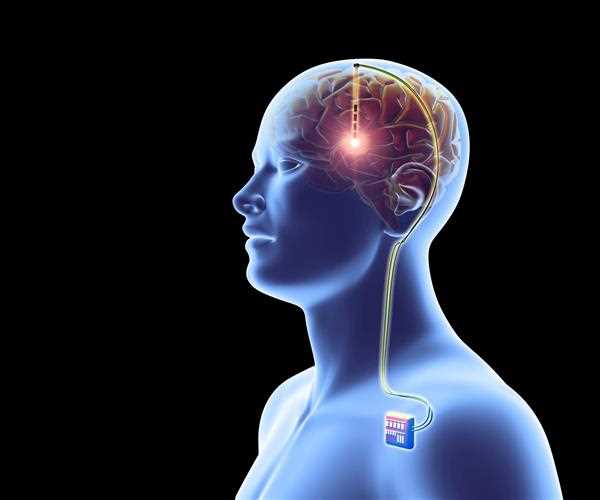Among all the innovations in the world of neuroscience and medical technology, there is almost no innovation that has created as much hype and controversy as brain implants. These marvels, called neural implants or brain-computer interfaces (BCIs), can change how our memories function and even perceive technology revolutionarily. In curation of future development, brain implants show humanity the way for further development that is not yet achievable and will lead to a lot more surprising improvements.
Basics of Brain implants
The basic element of a brain implant is that it works directly with the neural circuits embedded in the brain. It is more commonly comprised of electrodes that are surgically implanted in designated areas of the brain, enabling it to monitor and control neural activity. The electrodes, in turn, are externally connected to hardware platforms like computers or prosthetic devices that interpret the brain signals for communication or control purposes.
Applications and Benefits
Among the useful cases of brain implants, one of the most researched is in medical therapeutics. For people with neurological disorders or injuries in the spinal cord could get the hope of regaining their motor function or a sense from these devices. Brain implants enable neural prostheses to bypass the damaged neural pathways that are typically destroyed during paralysis and allow for patients with partial or whole-body paralysis to regain control over prosthetic limbs, as well as those individuals who do not have any prosthetics attached and only use computer interfaces.
In addition, brain implants are also able to remediate psychiatric conditions like depression and addictions by altering specific neural activities responsible for common pharmacological targets not currently fully treatable with thought-controlled neurology. Studies obtained the findings that DBS therapy can be performed as a brain implant which helps reduce the symptoms of those patients who are unresponsive to conventional treatments.
Advancements in Cognitive Enhancement
Outside of medical access to brushed causes, brain implants have gained academic interest in the process of pushing cognitive development. Capable of interacting directly with the neural circuitry within the brain, these devices can add cognitive and processing capabilities beyond that which humans normally possess—strengthening memory, and attention or even boosting human intelligence.
Several experimental studies have shown the possibility of letting implants into the brain so that it can make improvements in learning and memory in animal models. It seems that things to come in the human brain implants are just around the corner as early-stage research indicates that such neural connections will one day be made possible enabling communication directly between human brains and external units leading to possibly superior cognition or even telepathy usage.
Ethical and Societal Implications
On the other hand, new brain implants present us with somewhat moral and social issues. Major concerns raised during the discussion are about privacy, autonomy, and how this developing technology might be misused. The brain-computer interface technology is becoming more advanced day in and day out and this is posing a need to raise questions concerning the use of such advancements, as well as who should have access to some of these enhancements.
Also, the social impact of brain implants for integration into society has implications for issues about equity and access. Will these technologies widen the more to between social classes that can and go out augmentations of those who cannot? It will be essential to employ methods to deal with ethical dilemmas that will appear concerning brain implants in the future as their use becomes more prevalent.
Although, this approach has several challenges and uncertainties the future calls for hope and optimism in the field of brain implants. With the ongoing technological progress and increased awareness of brain functioning, these devices may revolutionize our attitude towards external reality and reveal new edges of humanity. Brain implants mark a transcendental frontier for neuroscience that spans from medical therapies to advanced forms of human cognition, encompassing the future of our kind.
Challenges and Limitations
Brain implants hold great potential for medical intervention but several challenges must be tackled to make them in use and consume. Implant technologies should be precise and reliable to overcome the brain’s complex structure and interconnected neural networks which are one of the major hurdles. Secondly, while some long-term effects of brain implants on neural tissue and cognitive function are understood to a degree, much of the lasting impacts remain unknown and create work related to safety and efficacy.
Regulatory Framework and Oversight
Increasingly, brain implants are shifting from experimental research to clinical applications. In such a transition effective regulation and monitoring can only be ensured if adequate controls and oversight mechanisms are established and relied upon In addition to the evaluation of these devices and their clinical use, government agencies like the FDA in particular are involved with the process of promoting medical devices such as implants for brains.
Public Perception and Acceptance
Brain implant revolutions are also greatly pawned on how the public perceives and its acceptance. Even though for some people these devices may be revolutionary inventions opening new horizons in life-saving opportunities and providing a better quality of life, there is more than a small percentage of people that are concerned with privacy issues, autonomy, possibility for misuse, etc. Public awareness of benefits, risks, and ethical dimensions should be promoted to underline the development of informed debate aimed at the responsible use of abilities.
In conclusion, brain implants should be considered a revolutionary frontier of neuroscience that presents immense possibilities for changing the healthcare environment for the better further advancing human capabilities, and creating new juices in the neurological capacity.




Leave Comment